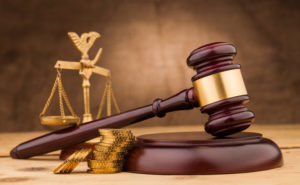 How Will a Bankruptcy Affect Trust Assets?
How Will a Bankruptcy Affect Trust Assets?
If you have a trust and you’re dealing with a lot of debt, you may wonder how personal bankruptcy and trust assets affect each other. How with filing bankruptcy impact the assets held within those trusts?
As a Memphis bankruptcy attorney, I sometimes come across this question from my clients. Like so many areas of the law, the answer is “it depends.” But here are some key factors to consider when thinking about bankruptcy if you have a trust.
How Trusts Work
To comprehend the impact of personal bankruptcy on trust assets, it’s important to understand how trusts work, and why.
Trusts are legal arrangements that allow individuals (known as grantors) to transfer assets to a trustee. The trustee holds and manages those assets for the benefit of designated beneficiaries – people who will receive the assets down the road.
Different types of trusts exist, and they have their own unique characteristics and implications in bankruptcy law.
 Revocable Trusts and Bankruptcy
Revocable Trusts and Bankruptcy
A revocable trust, also known as a living trust, can be altered or revoked by the grantor during their lifetime.
From a bankruptcy perspective, revocable trust assets are generally considered part of the bankruptcy estate. This means that the assets held in the revocable trust may be taken in a bankruptcy and used to pay back creditors. However, exemptions might apply, depending on state laws and the specifics of the bankruptcy case.
Irrevocable Trusts and Bankruptcy
In contrast, irrevocable trusts provide stronger creditor protection for trust assets during a bankruptcy.
In an irrevocable trust, the grantor relinquishes control over the assets. As a result, these assets are often shielded from creditors in bankruptcy.
The timing and intent behind the irrevocable trust can be critical factors: some trusts are really just an attempt to hide money away from authorities. If the bankruptcy court deems the trust to be fraudulent or an attempt to hide money from creditors, they may have the power include the trust assets in the bankruptcy estate.
Holding a Bankruptcy Case Open Because of a Trust
Say you expect to receive assets through a trust, but you face significant debt and want to file bankruptcy.
If you’re going receive these assets in the near future, the trustee may hold your case open until you receive the money and can include it in your bankruptcy.
So for example, let’s say you have a lot of debt at 18, but will receive a major trust at 25. The trustee can hold your case open even for years, and potentially make you pay from the trust assets.
 Legal Help for Bankruptcy and Trust Assets
Legal Help for Bankruptcy and Trust Assets
As you can probably tell, trusts and debt create a fragile situation, and you need an attorney who understands the complexity of the law.
Our knowledgeable bankruptcy attorneys can review the terms of the trust and provide guidance tailored to your specific circumstances. We can help you understand the potential impact on your trust assets, explore available exemptions, and help protect your interests as allowed by the law.
For over thirty years, we’ve helped thousands of people in Memphis get out of debt, so we’ve seen it all. We offer a free consultation, where we can discuss your options and what to consider.
To get started, contact us today at 901-327-2100 or fill out the form on this page.
